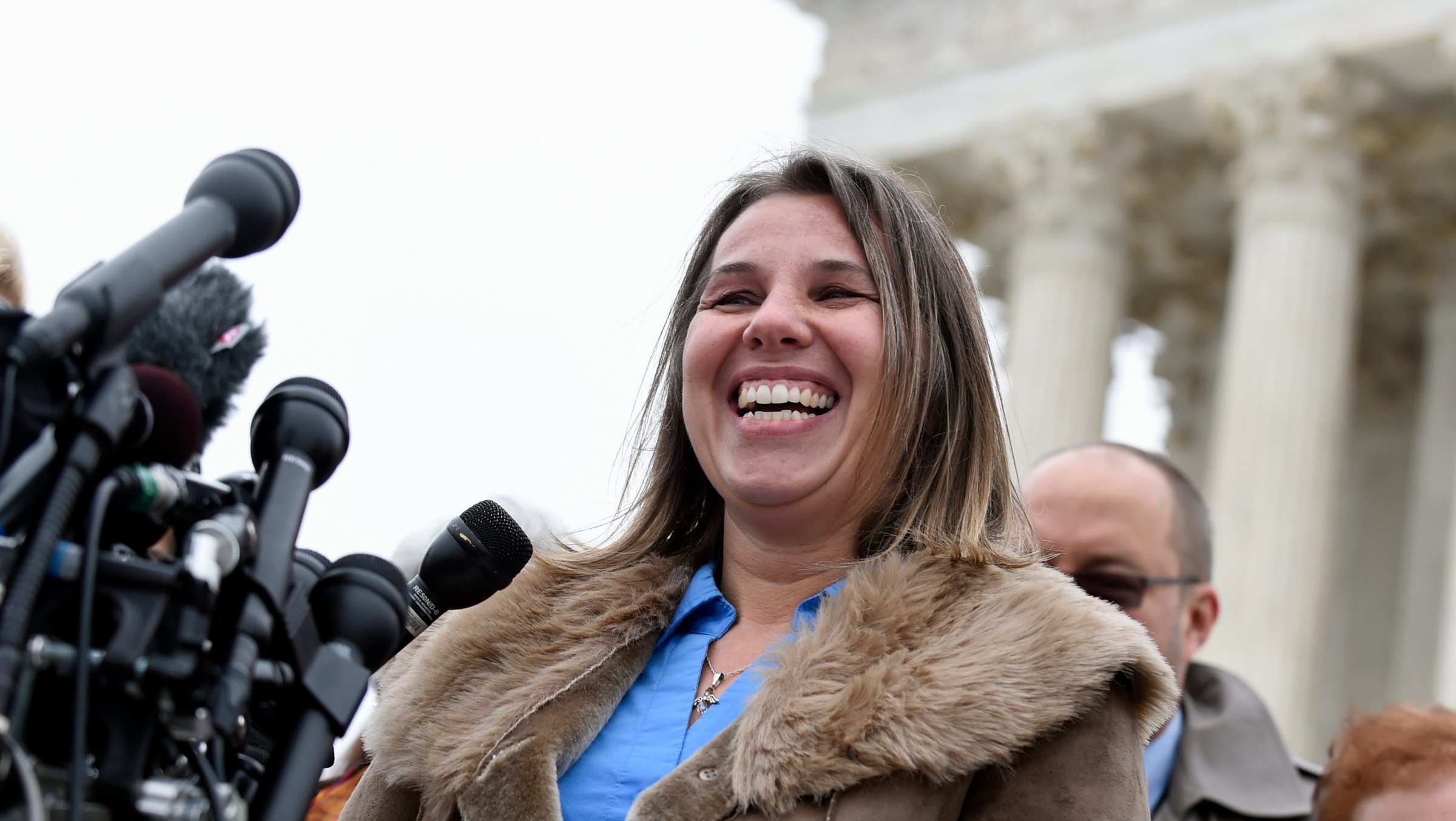
Is a pregnant woman like an employee who got injured on the job? Or more like someone who fell off an all-terrain vehicle over the weekend?
Those were the analogies that Supreme Court justices pondered on Wednesday in the most high-stakes challenge to pregnancy discrimination law in a generation. The answer could determine whether they side with UPS and business groups who interpret the law narrowly or with a former UPS employee who said the company was wrong to deny her request for an alternative assignment during her pregnancy.
A lawyer for UPS argued that the company’s policy — which granted workers alternative assignments if they were injured on the job but not for those hurt outside the workplace — did not discriminate because it treated pregnancy just like an off-the-job injury. The policy, they said, was neutral.
Justice Samuel Alito seemed sympathetic to that line of reasoning, asking rhetorically if a worker who fell off an ATV would have been treated the same way.
But an attorney representing former UPS employee Peggy Young argued the distinction between on-the-job and off-the-job workers was meaningless. If some workers were allowed to take alternative assignments when injured, he said, then not giving that same opportunity to pregnant women amounted to discrimination under the law.
Justice Elena Kagan seemed to agree. Her line of questioning was often the most aggressive, particularly when she was addressing the attorney representing UPS.
“The Pregnancy Discrimination Act has to be given a fair reading,” she said. “Saying a policy that accommodates some workers and puts pregnant women on one side of the line … seems like an unfair reading of the PDA.”
The Justices also heard from the U.S. Solicitor General Donald Verrilli who on Wednesday said the federal government’s position on the matter changed in response to guidelines issued by the Equal Employment Opportunity Commission over the summer.
Following the morning’s oral arguments, Young addressed a crowd of reporters saying she was “hopeful” that the Justices would rule in her favor. Her daughter Trinity, with whom she was pregnant when she worked for UPS, is now 7 years old. Young said Wednesday she doesn’t want her or her older daughter to have to go through the same thing she has.
“Women can work and be pregnant at the same time,” Young said. Young was only 7 when the PDA was passed, but she could soon represent the modern interpretation of the landmark law, which determined that pregnancy discrimination is in fact a form of sex discrimination under Title VII of the Civil Rights Act.
During oral arguments, a crowd of Young supporters—including both pro-choice and pro-life activists— chanted and rallied outside of the Court. Their rallying cry of “Stand With Peggy” echoed on the marble steps of the Court just moments before Young spoke.
Her supporters were also joined by Democratic Senators Bob Casey of Pennsylvania and Jeanne Shaheen of New Hampshire, who urged the court to protect the rights of working pregnant women across the country.
“A woman should never have to face a choice between her job and pregnancy,” Shaheen said Wednesday.
The Senators authored the Pregnant Workers Fairness Act, which would secure a woman’s right to seek on-the-job accommodations during her pregnancy without the risk of retribution. The act could offer remedy if the court decides against Young in the coming months, but women’s rights activists including Marcia Greenberger of the National Women’s Law Center say that change would do nothing to help Young, who missed six months of pay and later lost medical benefits after her request for accommodation was denied.
More Must-Reads From TIME
- The 100 Most Influential People of 2024
- Coco Gauff Is Playing for Herself Now
- Scenes From Pro-Palestinian Encampments Across U.S. Universities
- 6 Compliments That Land Every Time
- If You're Dating Right Now , You're Brave: Column
- The AI That Could Heal a Divided Internet
- Fallout Is a Brilliant Model for the Future of Video Game Adaptations
- Want Weekly Recs on What to Watch, Read, and More? Sign Up for Worth Your Time
Contact us at letters@time.com